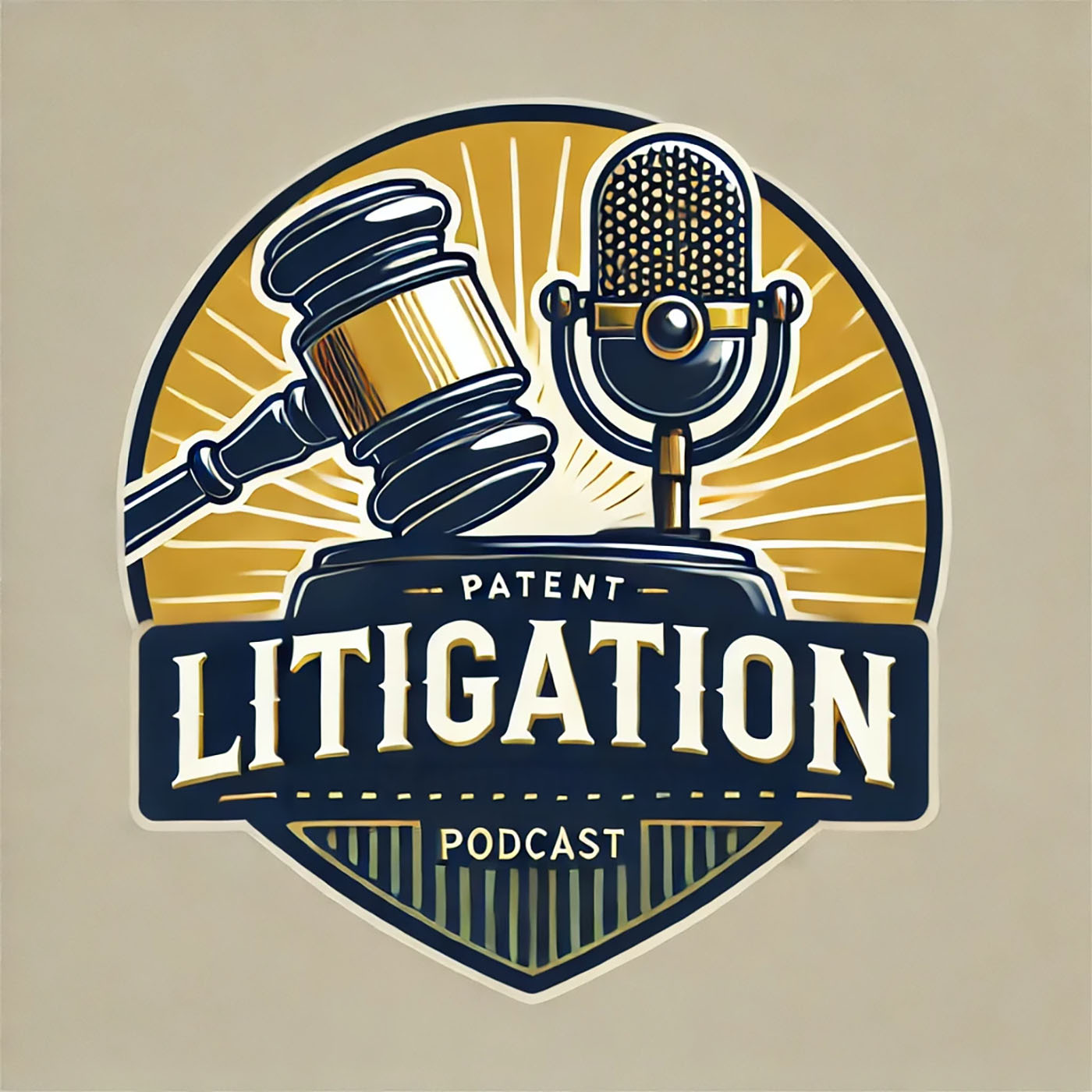The Patent Litigation Podcast
Podcast Description
The Patent Litigation Podcast by Erick Robinson explores into the intricate world of patent disputes, bringing together expert insights on legal strategies, landmark cases, and industry trends. Here we interview seasoned litigators, judges, and technical experts who share practical wisdom on every phase of patent litigation. From pre-filing considerations to post-trial remedies, we deliver valuable perspectives for attorneys, in-house counsel, inventors, and business leaders.
Podcast Insights
Content Themes
The podcast focuses on patent litigation strategies, landmark Supreme Court cases, and industry trends, with episodes covering topics such as the implications of the Kroy v. Groupon decision, the expansion of the domestic industry requirement in the Lashify case, and the effects of eBay v. MercExchange on innovation.

The PTAB Blog by Erick Robinson serves as a vital resource for navigating the Patent Trial and Appeal Board (PTAB). Offering in-depth analyses of decisions, procedural updates, and insights into evolving legal trends, the blog caters to attorneys, inventors, and stakeholders involved in patent disputes. With practical guidance, strategic advice, and focused coverage of landmark rulings and rule changes, it’s an indispensable tool for those handling PTAB matters or post-grant proceedings. Clarification note from Erick: in case it was not clear, my co-hosts, Sebastien Hale and Dr. Sonali Mishra, do not exist. In the words of Andy Dufresne, ”He’s a phantom, an apparition. Second cousin to Harvey the Rabbit. I conjured him out of thin air. He doesn’t exist, except on paper.” Except here they were created by AI. In any case, they are brilliant. But not real. Just like Randall Stephens.
The United States Court of Appeals for the Federal Circuit recently issued a decision in Ingenico Inc. v. IOENGINE, LLC that warrants careful analysis by patent owners and practitioners. This May 7, 2025 opinion addresses important questions regarding prior art invalidity grounds and the scope of Inter Partes Review (IPR) estoppel under 35 U.S.C. § 315(e)(2). The decision has significant implications for patent enforcement strategies, particularly regarding how patent owners defend against invalidity challenges following IPR proceedings.
The Ingenico case concerned patents directed to portable devices, such as USB thumb drives, with processors that facilitate communications between a terminal and a network server. After IOENGINE asserted these patents against PayPal, Ingenico (a supplier of accused products to PayPal) filed a declaratory judgment action and subsequently challenged IOENGINE’s patents through both IPR petitions and district court litigation. The Federal Circuit’s decision upholds a jury verdict invalidating IOENGINE’s patent claims based on prior art that was not raised in the IPR proceedings, interpreting the IPR estoppel provision in a manner that may significantly disadvantage patent owners.
This decision merits attention because it appears to create additional avenues for accused infringers to challenge patent validity, even after participating in IPR proceedings, by drawing fine distinctions between “grounds” that could have been raised in an IPR and those reserved for district court litigation. The court’s interpretation of “ground” in the IPR estoppel statute potentially weakens the intended protective effect of estoppel provisions, which were designed to prevent patent owners from having to repeatedly defend their patents against similar invalidity challenges in different forums.

Disclaimer
This podcast’s information is provided for general reference and was obtained from publicly accessible sources. The Podcast Collaborative neither produces nor verifies the content, accuracy, or suitability of this podcast. Views and opinions belong solely to the podcast creators and guests.
For a complete disclaimer, please see our Full Disclaimer on the archive page. The Podcast Collaborative bears no responsibility for the podcast’s themes, language, or overall content. Listener discretion is advised. Read our Terms of Use and Privacy Policy for more details.